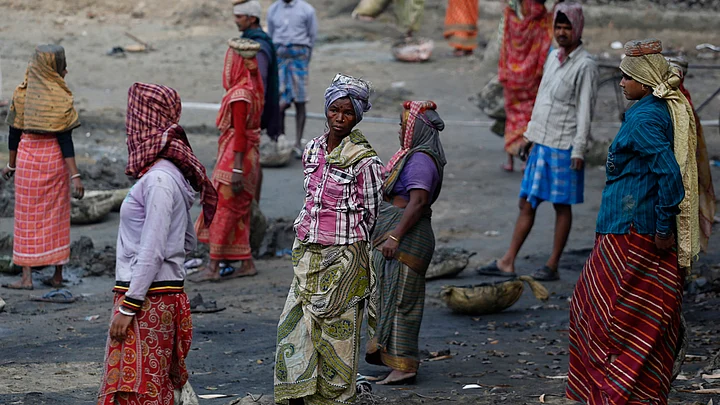Discard ‘Dole’nomics
- In order to give agricultural workers assured work, we need to speed up economic growth
- Mander wants greater public spending on rural infrastructure and watershed development which are welcome suggestions
- Mander calls for increased welfare spending, ignoring the effect this has on the fiscal deficit and inflation
In a recent article on the Socio-Economic Caste Census, Harsh Mander finds further grist for his ideological positions. He says rural India is a “massive hinterland...of hopelessness” where there is an “unending epidemic of farmer suicides” and “continuing distress exodus from the...countryside.”
Mander’s credentials to champion the cause of the rural poor are not in doubt. As an IAS officer he resigned in the wake of the 2002 Gujarat riots. He headed ActionAid for some time thereafter. He was a member of UPA-II’s National Advisory Council. Through an NGO he fights for social and economic justice, and communal peace.
It is true that 56% of people in rural India do not own land and have to depend on manual labour. Mander quotes Swedish author Jan Breman to describe rural landless workers as “footloose circular distress migrants.”
Are they? In the course of travelling for a TV series we heard farmers say that labour was not available when needed, that is during sowing and harvesting, because of a bunching up of demand, and they could not afford wages paid at construction sites or in factories.
.jpeg?auto=format%2Ccompress&fmt=webp&width=720)
Expensive Labour
We caught up with Kanhaiya Lal Patel, 52, of Tunda village in Unjha taluk of Mehsana district (Gujarat) in January, 2015. He had sold 18 quintals of cotton to Saksham Industries, a ginning mill owned by a farmers’ producer company (FPC). Of the cheque amount of Rs 76,154, he said, he would share a fourth with labour contractor Baldevbhai Karsanbhai Vaghela, 48. This bhagidari system is very much prevalent in Gujarat.
In mid-February, we met Sahebrao Balajio Chavan, 79, who owns 15 acres of irrigated land in Vadod Kanoba village in Kultabad taluk of Maharashtra’s Aurangabad district. He drip irrigates his entire farm on which he grows cotton, cane, maize and mosambi. “I do not get labour,” he said. He had hired a full-time worker from Bihar, whom he paid Rs 6,500 a month. “He works well. I will 100% hire another Bihari worker if I get one. They work very hard,” he added.
Chavan had paid Rs 10 a kg to pick cotton. “In the last flush, I give half the picked cotton as wages.”
.jpeg?auto=format%2Ccompress&fmt=webp&width=720)
Farm Mechanisation
S S Ghughe principal of an agricultural diploma school attached to Vasantrao Naik Marathwada Krishi Vidyapeeth in Parbani district of Maharashtra said “our students get no more than Rs 5,000 a month but in the field no one works for less than Rs 8,000 a month.” For this reason he said, “mechanisation of sowing and picking operations is essential.”
At the beginning of July we were in Coimbatore. K Kanaraj, 43, of the district’s Semmedu village said they would pay Rs 1.25 to pluck a coconut. In one cycle of 40-60 days, about 4,000 coconuts are harvested. But the farmer producer company set up in 2013, of which he is a member, had brought the charge down to Rs 0.90 by assuring the plucking teams regular work.
Can labour be in short supply and agricultural workers in distress at the same time?
If rural workers are roaming around in search of work, why is no- or minimal-tillage conservation agriculture catching on in Jabalpur, Ludhiana and Samastipur?
Speed up Growth
Yes, agricultural workers will be hard-pressed during off peak times. To give them assured work, we need to speed up economic growth. Mander calls this the usual neo-liberal prescription. He wants greater public spending on rural infrastructure and watershed development. These are welcome suggestions. But land reform is not practical. At a time when there is so much fragmentation we need to ensure managerial consolidation of land holdings by easing leasing laws.
Mander calls for increased welfare spending, ignoring the effect this has on the fiscal deficit, inflation and interest costs. He wants expansion of MNREGA. Rather than more welfare spending, we need to ensure that the money allotted is effectively spent.
The farmers we met universally disliked MNREGA for pushing up wages and creating labour shortages. As employers, farmers have an interest in suppressing wages. The state cannot allow that to happen. But is MNREGA really the solution?

No More Doles
In March Mathura district was badly hit by hailstones and off-season rains thereafter had completed the damage. While talking to a group of farmers about whether they had taken crop insurance, More Pal, 50, who owns 20 bighas of irrigated land and had leased in about seven acres, said he was not aware of the education for premium and could I check his bank passbook? While going through it, I found no entry for premium payment, but there were monthly receipts of Rs 1,700 for MNREGA work!
I am sure this is not an isolated example.
Mander accuses the government of practicing market fundamentalism while peddling fundamentalism of another kind. The answer to rural distress is productive employment creating growth, not more doles.
(The writer is consulting editor to www.smartindianagriculture.in)
(At The Quint, we question everything. Play an active role in shaping our journalism by becoming a member today.)
